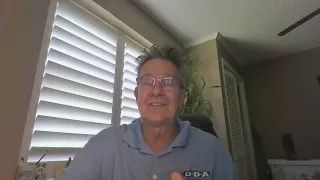How does the loan process work - part 1 of a 3 part series
DDA Mortgage • January 29, 2020
Know how the loan process works from the beginning to the end before committing to a provider.
So, what is the first step to getting a mortgage in Florida? Watch the video to learn more.
The first step to getting a mortgage in Florida is to find a mortgage broker to take a loan application. Typically this is done over the phone. We ask some basic questions like where you've lived and where you've worked for the last two years? Who you do you bank with.
We ask yes or no questions on the declaration. We need your social, date of birth, and how many years of school do you have.
Once we get that loan application started, we can put your credit and we run it through DU and LP. We want to make sure it's approved before we submit it to the underwriting.
The other thing we're going to do is ask you for documents. we're gonna
need your documents so we're gonna ask
✓ 2-years personal returns
✓ 2-years of W-2’s
✓ 2-months bank statements with all pages
✓ Copy of drivers license and social security card
✓ Copy of leases if applicable
✓ Copy of mortgage statement
✓ Copy of owner's title policy if a refinance
✓ Copy of old survey if a refinance
✓ Copy of note and mortgage in some cases
✓ Letters of explanation if needed
✓ 2-years of W-2’s
✓ 2-months bank statements with all pages
✓ Copy of drivers license and social security card
✓ Copy of leases if applicable
✓ Copy of mortgage statement
✓ Copy of owner's title policy if a refinance
✓ Copy of old survey if a refinance
✓ Copy of note and mortgage in some cases
✓ Letters of explanation if needed
We do not have you send it to us directly. If anyone ever asks you for this information through an unsecured method STOP immediately. All brokers have secure emails so we send the information through a secure site. You open the site up and all you do is upload PDFs right in there.
The processor takes the files and waits for a home inspection and an appraisal which we will discuss further in Part 2 of our series.
Check out our other helpful videos to learn more about credit and residential mortgages.

When you're buying a home, it's not just about affording the purchase price or down payment. You’ve got closing costs, moving expenses, and all the “surprise” things that come up after you move in — like needing a new appliance, fixing a plumbing issue, or just furnishing the place. Keeping some cash reserves is smart. A good rule of thumb is to have at least 3-6 months of living expenses saved after the purchase, just in case life throws a curveball. Are you thinking about buying soon or just planning ahead? tune in and learn https://www.ddamortgage.com/blog didier malagies nmls#212566 dda mortgage nmls#324329

Wade Pfau, a leading voice in retirement income planning, has long advocated for the strategic use of reverse mortgages —and current market volatility could reignite interest in this often misunderstood tool. 🔁 Why Market Volatility Renews Reverse Mortgage Talks In times of market downturn, retirees face sequence of returns risk , meaning early losses can severely impact the longevity of their portfolio. Pfau suggests that reverse mortgages , particularly Home Equity Conversion Mortgages (HECMs) , can act as a buffer asset to avoid selling investments at a loss. Here's how: During market dips , retirees can pull funds from a reverse mortgage line of credit instead of their investment accounts. This gives their portfolios time to recover before resuming withdrawals. Result : More sustainable income and potentially greater long-term financial security. 🧠 Shift in Strategy: Not Just a Last Resort Pfau argues that reverse mortgages should be considered early in retirement planning , not just as a last-ditch effort: Opening a HECM line of credit early can grow over time due to the compounding credit line. Provides flexibility and tax-efficient access to funds. Helps retirees coordinate income sources between portfolio withdrawals, Social Security, and home equity. 👓 Changing Advisor Perspectives Financial advisors—previously skeptical—are beginning to see reverse mortgages in a new light: Volatile markets have prompted a more open-minded view among planners. More are incorporating reverse mortgages into holistic retirement income strategies . Bottom line : Market volatility doesn’t just threaten retirement—it also opens the door to rethinking traditional strategies . As Pfau puts it, home equity is too significant a resource to overlook, and when used wisely, reverse mortgages can enhance retirement resilience

Are you a salaried employee, hourly, self-employed, or a contractor? Do you receive bonuses, commissions, or overtime? How consistent is that income? Can you provide recent pay stubs, W-2s, or tax returns? Self-Employment (if applicable): How long have you been self-employed? Can you provide two years of business tax returns and profit/loss statements? 🔹 Funds to Close Questions Lenders want to confirm you have enough money to cover the down payment, closing costs, and reserves. Questions may include: Source of Funds: How much money do you have saved for the down payment and closing costs? Where are these funds coming from (savings, checking, retirement account, gift, etc.)? Are you receiving any gift funds? If so, from whom? Asset Documentation: Can you provide bank statements from the past 2–3 months? Are there any large or unusual deposits? Can you explain them? Reserves: Do you have additional savings left after closing (reserves)? Can you show evidence of other assets (stocks, bonds, retirement)? tune in and learn https://www.ddamortgage.com/blog didier malagies nmls#212566 dda mortgage nmls#324329


